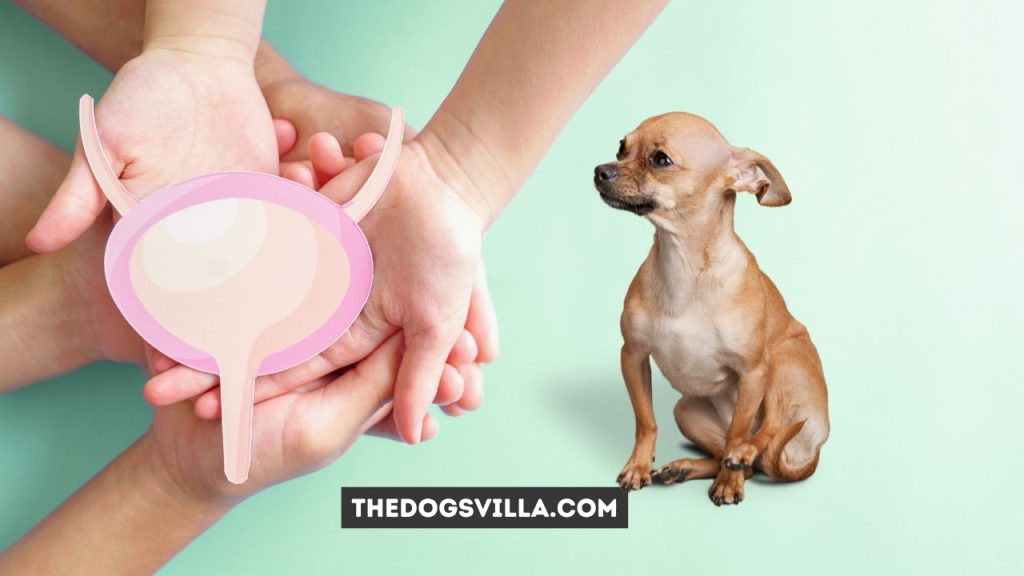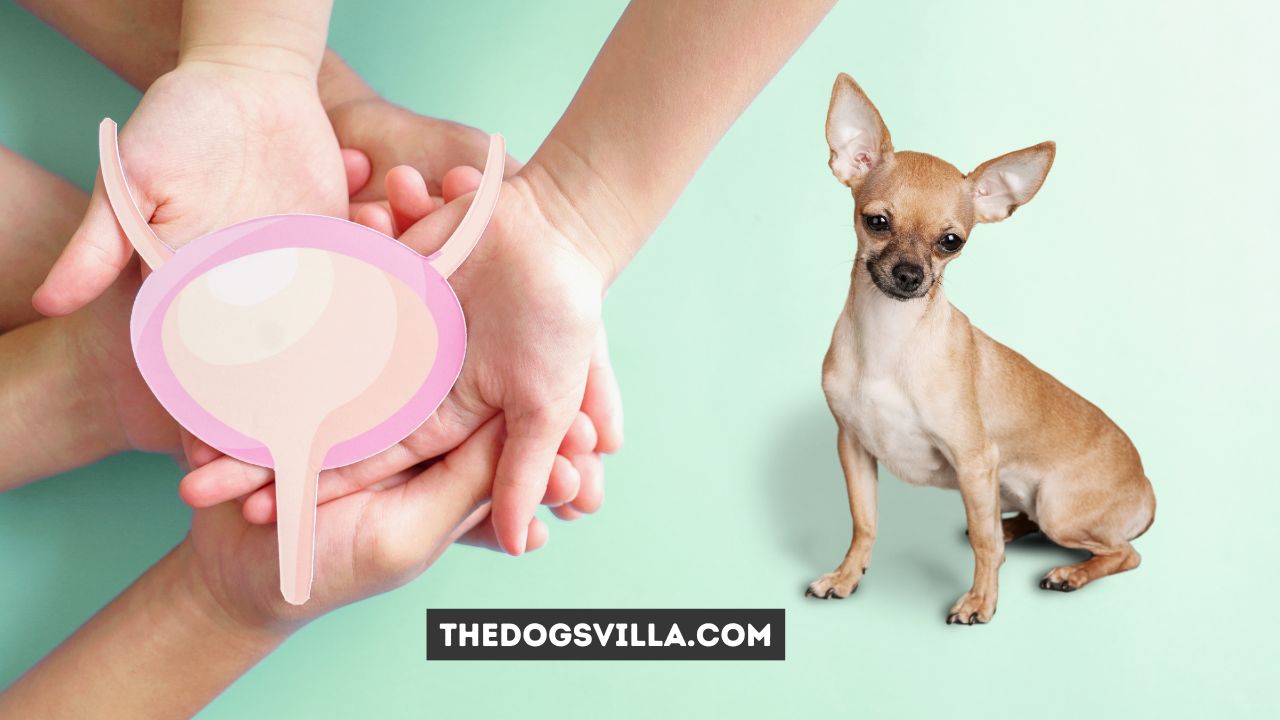Chihuahuas are tiny dogs with equally tiny bladders. Their small size and big personalities make them a popular breed, but they do require some special considerations when it comes to housetraining and bladder control. Understanding a Chihuahua’s physical capabilities, developmental factors, and health issues related to urination can help you set appropriate expectations.
Contents
How Long Can a Chihuahua Hold Its Bladder?
On average, a healthy adult Chihuahua can hold their bladder for:
3-4 hours during the day
During their awake, active hours when not crated, Chihuahuas typically need potty breaks every 3 to 4 hours. However, exceptions abound depending on variables like age, physical condition, etc. Smaller-sized Chihuahuas tend to urinate more frequently than their larger counterparts.
Up to 8 hours overnight
Provided good potty habits before bed, most adult Chihuahuas can sleep uninterrupted without needing bathroom breaks for roughly 8 hours at night during periods of slower metabolisms. Allow outside potty opportunities right before and after their longest stretch of rest.
Of course at the other extreme, Chihuahuas can “hold it” even longer in emergencies, just like humans. But regularly exceeding bladder capacity stresses the body and causes discomfort.
How Long Can Chihuahua Puppies Hold Their Bladders?

Housetraining a Chihuahua puppy poses a unique challenge due to their tiny size and notoriously small bladders. While accidents inevitably come with the territory of raising an infant canine, understanding bladder capacities by age helps set realistic expectations so you can optimize patience and strategy.
While each puppy’s development differs slightly, below offers a helpful benchmark overview of general capability ranges to expect as Chihuahuas mature month-by-month:
| Age | Maximum Uncrated Hours | Overnight Crated Hours |
|---|---|---|
| 8 – 10 weeks | 1 – 2 hours | 2 – 3 hours |
| 3 months | 2 – 3 hours | 4 – 5 hours |
| 4 months | 3 – 4 hours | 5 – 6 hours |
| 5 months | 4 – 5 hours | 6 – 7 hours |
| 6 months + | 5 – 6+ hours | 7 – 8 hours |
You’ll notice major leaps around key maturity milestones then leveling off by month 5 and 6. But don’t become lax supervising an underperforming puppy that routinely tests capacity limits. Regressions warrant crackdowns!
When gauging how long those adorable Chihuahua puppies dancing around your home can actually “hold it” before dashing off mid-piddle, consider these developmental factors:
8 – 10 weeks
At this tender age, Chihuahua puppies have very limited bladder capacity and urgency control, only able to hold urine for an hour or two at most. Expect to run outside every 30 to 60 minutes unless they are sleeping soundly in their crate, then extend to every 2 hours.
Frequent accidents are normal the initial few weeks! The goal is simply heading outside immediately upon noticing sniffing, circling or squatting behavior so they start associating preferences for outdoor elimination.
11 – 12 weeks
Bladder control steadily improves to hold 1.5 to 2 hours comfortably when actively supervised and engaged with human company or play. Yet tiny tanks still fill quickly, so continue taking them out regularly. Crate overnight sleep stretches for 3 to 4 hours undisturbed also become realistic at this stage.
13 – 16 weeks
Congratulate yourself over surviving the first housetraining hurdles! At this magical three to four month mark, most Chihuahua puppies can sustain control for 2 to 3 hour intervals when awake plus sleep through the night for up to 5 hours straight in their crate without bathroom breaks.
Gradually build daytime capacity by watching for circling, sniffing or squatting then rushing promptly outside. Increase intervals between trips by just 15 to 30 minutes weekly as they demonstrate readiness by eliminating immediately upon reaching target zones.
Accidents now warrant remedial reinforcement of good habits. Expand crate overnight capacity too but consider an extra wee-hours break if struggling to hold longer than 5 hours.
Factors Impacting How Long Chihuahuas Can Hold Their Bladder
A Chihuahua’s ability to control their bladder depends on elements like genetics, housebreaking success, external influences, motivation levels, and health issues:
Genetics and Size Differences
Dogs with high metabolisms, smaller bladders, or excitable dispositions urinate more frequently. Chihuahuas bred to remain fairy-sized year-round tend to have lower capacities than larger teacup-turned-standard counterparts carrying more concentrated genes.
Housebreaking Routines
Consistent schedules make bodily functions easier to predict/control. Well-drilled adult Chihuahuas often develop lower urgency levels and more bladder stamina versus inconsistently trained dogs.
Environmental Distractions
Interesting smells, sights and sounds reduce focus on bodily cues and spark urges to mark territory. Events like visitors, arrangements changes or even different walking paths can temporarily intensify pee behaviors.
Motivation Levels
Lackadaisical Chihuahuas willing to lie comfortably for prolonged naps can usually squeeze out longer stretches than hyperactive individuals bursting with pent up energy and struggling to ever truly settle.
Underlying Medical Problems
Compromised urinary health makes holding urine difficult despite best intentions. Issues like UTIs, bladder stones or diabetes frequently create accidents and extreme urgency.
What Age Should Chihuahuas Be Able to Hold Their Bladder Through the Night?
Most Chihuahuas can sleep through the night without bathroom breaks by 4-5 months old. Here are nighttime housetraining milestones by age:
- 8 – 12 Weeks: Needs middle-of-the-night bathroom break
- 3 Months: Can hold bladder 5 hours overnight
- 4 Months: Should reliably sleep 6-7 hour stretches
- 5 Months +: Capable of holding 8+ hours overnight
Note every dog differs! Larger Chihuahua mixes reach these benchmarks quicker. If struggling beyond these ranges, consult your vet to rule out health issues, then revisit housetraining protocols.
Why Does My Chihuahua Urinate So Frequently?
For fully housetrained adult Chihuahuas, abnormally frequent urination could stem from:
Urinary Tract Infections
Recurrent UTIs make it excruciating to hold urine and cause sudden, intense urges to void the bladder. Please see your veterinarian for antibiotics.
Bladder Stones
Crystals or stones blocking urine flow also create persistent urges with difficulty fully emptying the bladder. Veterinarians can prescribe food.
Kidney or Liver Disease
Compromised organs struggle excreting waste, so toxins build up rapidly mandating frequent filtration. Medical intervention can help ease discomfort.
Diabetes
Excess blood sugar gets excreted through urine, which pulls fluid from tissues causing excessive thirst and urination. Insulin therapy is key.
Obsessive Marking
Very territorial Chihuahuas become overzealous about covering every inch of their domain with urine, even if adequately housetrained. Address underlying insecurities fueling obsessive scent-marking behaviors.
Excitability
Anxious temperaments and extremely hyperactive Chihuahuas simply never truly settle long enough to sustain bladder control for reasonable durations. Relaxation training helps transform frenetic energy.
Poor Housetraining
Mistimed, infrequent or incomplete potty training makes “holding it” seem optional rather than mandatory. Revisit the basics of supervision, routine and confinement.
If your adult Chihuahua leaks urine submissively when excited, anxiously potties scattered drops, or lacks awareness, suspect weakened muscles requiring veterinary input.
How Long Can a Dog Hold Their Bladder?
A dog’s ability to hold their bladder varies dramatically by factors like age, size, health status, etc. While no strict universal rules exist spanning all canines, below offers a helpful benchmark overview of average bladder capacity ranges among different types of dogs.
Bladder Capacity by Age
| Dog’s Age | Max Uncrated Hours | Overnight Crated Hours |
|---|---|---|
| 8-12 week puppy | 1-2 hours | 2-3 hours |
| 6 month old | 3-4 hours | 5-6 hours |
| 1 year old | 5-6 hours | 8-10 hours |
| Healthy adult | 8-10 hours | 10-12 hours |
| Senior dog | 6-8 hours | 8-10 hours |
Key Notes on Bladder Control by Age:
- Puppies under 3 months need very frequent bathroom breaks
- 6-12 month adolescent dogs can hold incrementally longer
- Most physically mature adults over 1 year reliably hold 8+ hours
- Senior dogs often regress in continence capabilities
Impact of Dog Size on Urination Frequency
- Tiny dogs have lower capacity bladders by volume, demanding quicker breaks
- Medium dogs reach adequate control faster with fewer accidents
- Large/giant breeds gain full control later but develop the longest hold times
Bladder Capacity by Breed Size Category
| Size | Indoor Capacity | Outdoor Capacity |
|---|---|---|
| Tiny <10lbs | 2-4 hours awake | 3-6 hours active |
| Small 10-25lbs | 4-6 hours awake | 6-8 hours active |
| Medium 26-50lbs | 6-8 hours awake | 8-10 hours active |
| Large 50-90lbs | 8-10 hours awake | 10-12 hours active |
| Giant 90+ lbs | 8-12 hours awake | 10-14 hours active |
Key Factors Influencing Urinary Control
- Genetics – Some lineages have innately higher urge levels.
- Health Issues – Incontinence/infections reduce retention ability.
- Behavioral Triggers – New sights, sounds, smells stimulate marking.
- External Stressors – Storms, separation anxiety, commotion inspires peeing.
- Confidence Levels – Submissive urination correlates with poor control.
- Prior Housetraining – Consistency and supervision impacts habits.
- Fitness Levels – Obese/inactive dogs hold shorter intervals.
- Medications – Some prescriptions exacerbate leakage issues.
Frequently Asked Questions
Still unsure if your Chihuahua’s habits seem within normal ranges? Here are answers to some frequently asked puppy and adult bladder control questions:
How Long Can an 8 Week Old Chihuahua Puppy Hold Its Bladder?
Newly homed 8 week old Chihuahua puppies can only sustain bladder control for an hour or two initially but capacity expands quickly across the next few weeks. Strive for potty breaks every 30-60 minutes unless crated.
My 3 Month Old Chihuahua Can’t Sleep Through the Night Without Needing to Go Out – What Should I Do?
Perfectly normal! 3 month old Chihuahua puppies often need middle-of-the-night bathroom breaks. Set alarms to take yours out once during the night, choosing whichever interval allows the longest stretch of unbroken rest (say, 4 hours). This interim step still promotes body awareness without excessive struggle.
Should My 6 Month Old Chihuahua Be Able to Hold Its Bladder for 8 Hours Overnight?
At 6 months, your Chihuahua pup should be able to sleep for 6-8 hours without nighttime breaks. If struggling beyond this or having consistent overnight accidents, revisit housetraining measures like later evening feedings, liberal praise for correct potty habits prompt rewards for overnight success, confinement when unsupervised, etc. to align biological needs with preferred elimination sites for solidifying this final housetraining milestone.
Why Does My Chihuahua Pee So Frequently When There’s a New Dog Visiting?
Guest dogs inspire overzealous scent-marking in resident dogs unaccustomed to intrusions in their territory, especially excitable breeds like Chihuahuas. Restrict your dog’s access to newcomers and liberally apply enzymatic cleaners to discourage excessive indoor peeing spawned by perceived threats.
My Chihuahua Pees Whenever Anyone Pet Them – Why?
Some Chihuahuas lose bladder control when excited or anxious, though usually outgrow this tendency by adulthood with positive socialization. Discourage overly rambunctious greetings, teach calming behaviors on cue using treats, and prompt preemptive potty breaks before high-stimulus interactions to set them up for success until 12 months+. Consult your vet if this continues despite training efforts.
Conclusion
Chihuahuas thrive on routine and demonstrate impressive ability to regulate bathroom needs…when sufficiently motivated! While tiny bladders create occasional challenges, a savvy pet parent guiding the proper lifestyle fit, providing positive reinforcement, and working preventatively to uphold training can help this intelligent, affectionate breed reach full housetraining potential. Pay attention to cues, identify any potential medical issues, seek veterinary guidance as needed, stick to a consistent schedule, praise progress, and enjoy the delightful companionship of your new best friend.
For further housetraining tips check out:
Indoor Housetraining Chihuahuas | AKC

